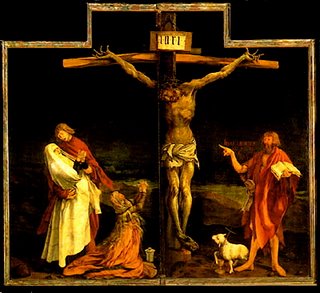
The necessity of thinking God together with perishability is the final turn in the disputation with the metaphysical tradition. There is a double necessity for this thought: first, an objective necessity is given through the Christological exposition of the biblical tradition and second, it is required as a consequence of the historical consciousness which has grown out of modern metaphysics. In the structure of modern metaphysics, to exist means to be perishable. Theology must raze the metaphysical God who is supra nos by positing that God’s essence is his existence (as a non-contradictory unity) such that he is understood to be subject to perishability, since he indeed exists and does so within the dimension of historical factuality so that this dimension is the undisputable location of the thinkability of God’s unity with perishability. More precisely, Christian proclamation trustfully and faithfully speaks of the unity of God with the executed Jesus of Nazareth so that it discovers God and humanity already together in Jesus Christ—God’s unity with perishability is God’s subjecting his glory in Jesus Christ to perishability for the sake of perishing humanity (kenosis). Faith acknowledges this reality and in so doing is the precondition for the thinkability of God since it preserves the identity of God’s being and existence—it takes God’s existence (which is an existence subjected to perishability) as his being. It is faith, not as a function of anxious self-security, but as a joy and trust in God—an event which eradicates the need for self-security such that the human being is not insecure but certain (since trust is the certainty which removes security) and free in its relationship to God.
The possibility of thinking God’s unity with perishability is sought within the historical situation of modern thought—this brings us back to the talk of the death of God. Either theology thinks God’s unity with perishability in such as way that God and faith belong to the past and that atheism rules the day, or it thinks in such a way that God and perishability and their relation must be re-thought. Within the structure of modernity one cannot think of perishability and God together without doing away with the metaphysically conceived deity. In its thinking of perishability, modernity has cast it in an entirely negative light, so that even the possibility of conceiving of God coming together with death was ruled out—the metaphysical God cannot tolerate perishability. On the other hand, and with some clarity, Nietzsche asserted that perishability could not tolerate God (the Pauline ‘God on the cross”)—yet in the end, Nietzsche was bound to metaphysics in that he considered perishability abstractly. Therefore, in order for theology to speak clearly about God’s unity with perishability, about a God who is in heaven in such a way that he can identify himself with the poverty of the man Jesus, it must attend to this unity with renewed precision. Perishability, in its negative aspect as a simile of the tendency toward nothingness conceals its positive in its inherent possibility, which is given ontological primacy over Aristotelian ‘reality’ so that possibility is the ontological plus of being, that is, it is capable of becoming, and not a deficiency in reality. Perishability is understood then to be the struggle between possibility and nothingness.
The language of the death of God would then imply that God is in the midst of this struggle. Based on the word of the cross, as the One without whom nothing is (including perishability), God is not the Creator removed from struggle but is rather the creative being involved in the struggle against nothingness which precipitates a hermeneutical priority to the word of the cross. God has involved himself with nothingness in the form of a struggle in which he shows nothingness its place by giving it a place within the divine life, whereby in bearing annihilation within himself without himself being annihilated, proves to be the victor over nothingness and gives to nothingness its determination as concrete negation. Yet as the one who identifies himself with the dead Jesus, as the one who suffers endlessly, God is the one who exists for others and does so by defining himself as love on the cross of Jesus. God is in and of himself in such a way that he is for humanity. This is not to be understood as an inner necessity but as an un-coerced freedom of God’s self-definition with the man Jesus so that just as love for us, God is love in and of himself. Because God is love, he counters nothingness and not vice versa. We grasp the being of God then as a Going-Out-Of-Himself into nothingness—this is his essence—and his existence as this essence is an existence marked not by standing outside of nothingness but standing into nothingness. In his going out of himself, God is the One who remains in the process of becoming, going into nothingness and yet going in such a way as always coming from himself. God’s activity ad extra which is his being as becoming is the work of God ad intra, his existence is his essence and he is thought, and only thought, in his unity with perishability.
No comments:
Post a Comment